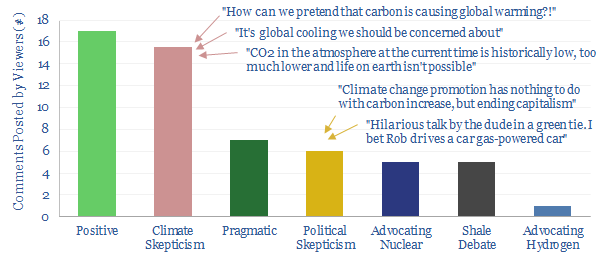
…called for a greater emphasis on nuclear or hydrogen and continued vilification of traditional energy companies. Our economic analysis suggests economics will be challenging for hydrogen, while nuclear breakthroughs are…
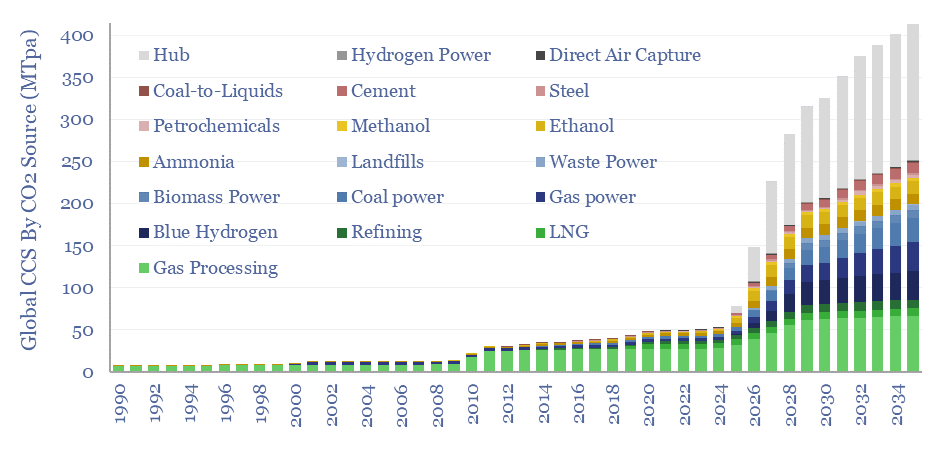
…by 2035, up 10x from 2019 levels. The largest CO2 sources are hubs, gas processing, blue hydrogen, gas power and coal power. The most active countries are the US, UK,…
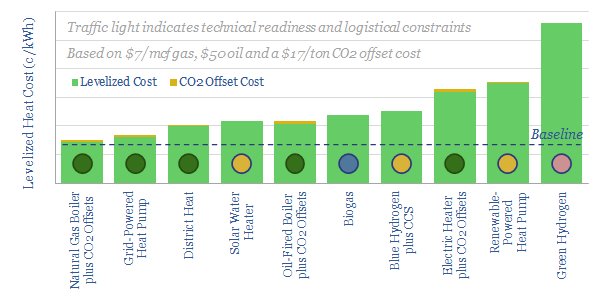
…grids (page 12). Hydrogen is least economic of the options we considered. Costs and challenges for blue, semi-green and fully green hydrogen are outlined on pages 13-14. Capturing more waste…
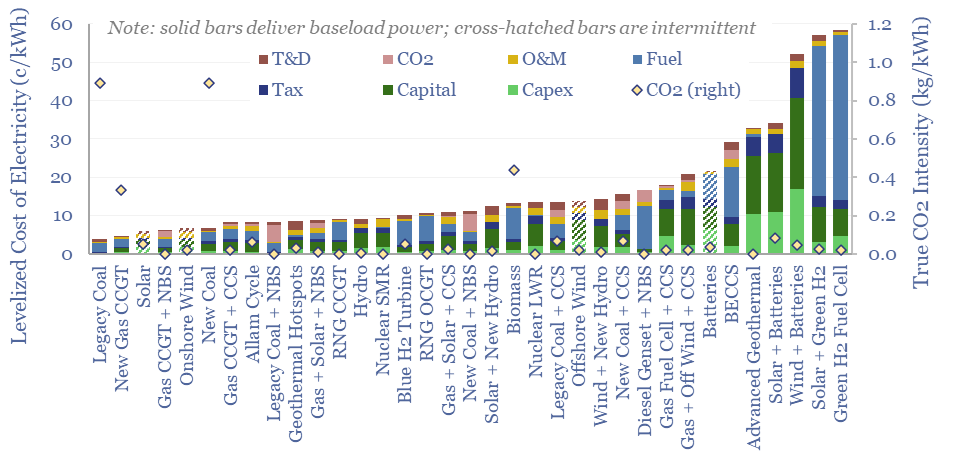
…gas plant, coal for a coal plant, hydrogen for a hydrogen plant, etc. By contrast, fuel costs are often zero for renewables. Again, these can readily be flexed in the…
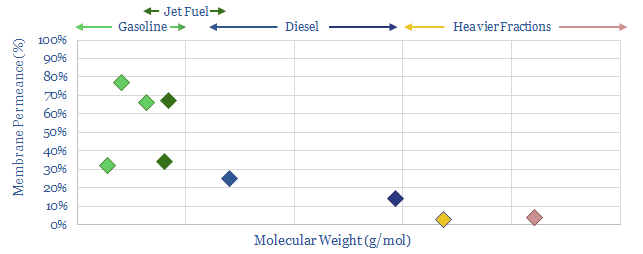
…lowest cost hydrogen in the world, recovering hydrogen that is currently wasted or purged in the effluent streams from refinery units. An industry leading example of this technology is explored…
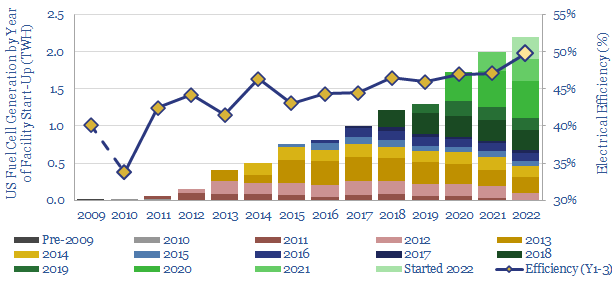
…to convert green hydrogen back into electricity. Although in our view, this is the thermodynamic equivalent of printing out your emails. Our hydrogen conclusions are summarized here. What is the…
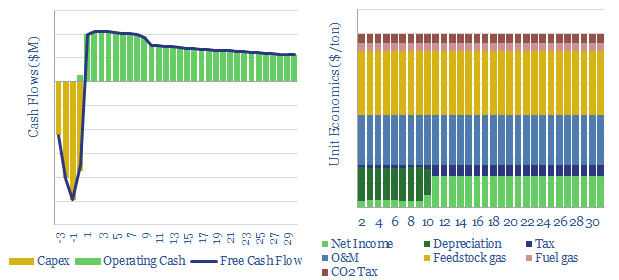
…gas reforming, blue methanol from blue hydrogen and industrially captured CO2, green methanol from green hydrogen and direct air capture CO2, and finally bio-methanol. Inputs are taken from a wide…
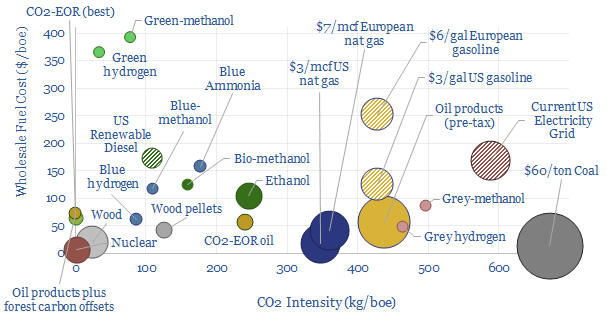
…costs. Switching coal to gas actually achieves more decarbonization than switching gas to green hydrogen. $199.00 – Purchase Checkout Added to cart Included in the file are different oil products, gas markers,…
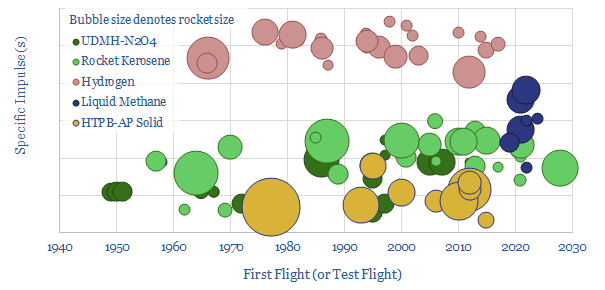
…new-comer, LNG. Although hydrogen provides the greatest specific impulse, a measure of a rocket’s thrust per fuel mass, we actually find a surprising trend away from liquid hydrogen in rocket…
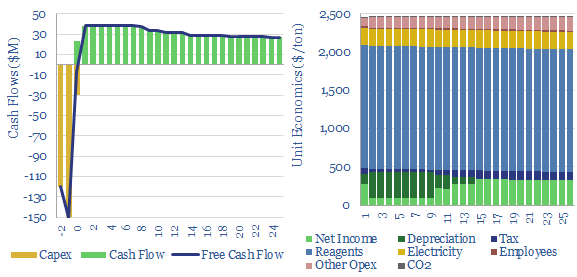
…PGMs and Rare Earths. Even aluminium, chlor-alkali and green hydrogen are debatably electro-winning processes, or at the least electro-chemical processes whose energy economics can all be modeled using Faraday’s Law…










